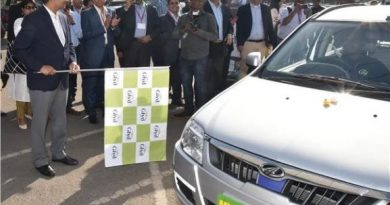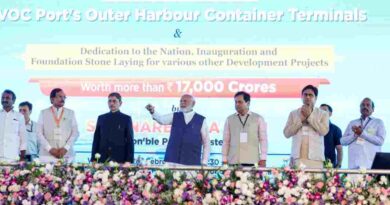R.K. Singh bats for Paradigm Shift in Power Billing System

The government is committed to moving the power sector to a pre-paid regime, rather than a post paid model, to tackle issues of non payment as well as long term sustainability for the sector.
India is moving towards a new regime where a power consumer would pay first and then get power supplies, which would eventually deal with the issue of non-payment in the sector, Union minister R K Singh said. The minister also made it clear that states can give free power to certain sections of society but they would have to pay for it from their own budget.
“That is what we are going to do. We are putting a connect between payment and delivery. You make the payment first and then you will get the power… there is no such thing as free power. You cannot produce power without an investment,” Singh said addressing at 20th Annual Day of PTC India here.
Elaborating about the non-payment which was one of the main reasons for the stress in the power sector, Singh said,”There was a disconnect between sustainability considerations and immediate political considerations in many states. For the record, India has one of the highest transmission and distribution losses among the G-20 countries, a large part of which are attributed to power theft. This has a cascading effect on power prices for the paying consumers, as well as the health of the discoms themselves.
Stressing on the need to shift the sector to a more sustainable model, Mr R.K. Singh was of the view that states cannot have a system whereby they distribute free power and do not collect the price of the power. Stressing that the basic requirement of sustainability of the sector is, establishing a connection between payment and delivery.
Speaking about coal availability, he said, “Second big thing is that you (power generator) would get coal (supply) without bothering about power purchase agreement. Anybody should be free to set up a generating unit and get coal.”
In the existing system, power generators must have long term power purchase agreements (PPAs) with discoms to get coal linkage. This caused stress in the power sector. A large number of operational power plants starved for the dry fuel in the absence of coal.
The minister said, “Why should anybody require PPA to generate power. They can sell in the market. That is the system we are aiming at. That will ensure efficiency and sustainability. That will do away with all the reasons for stress in the power sector. The basic cause of the stress was non-payment and non-availability of coal.”
The minister seems to have taken a leaf from the telecom playbook, where the sector is almost exclusively a pre-paid play, with less than 5% of subscribers on post paid plans. In a low revenue per user scenario, this advance payment model has been among the few saving graces in keeping the sector afloat.
Agricultural power pricing is set to become a major challenge for the governments at both the state and central levels, as it is obvious that it has led to more abuse than benefits. Not only have farmers got poor quality power in most cases, free power has also meant unnecessary waste of energy, and even further damage by over extraction of ground water , another ‘free’resource for farmers. In that sense, poor policies in the power sector are actually a key factor behind India’s groundwater crisis.
With inputs from www.saurenergy.com




